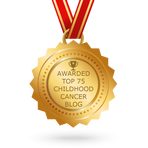|
Courtesy of: CURESEARCH For Children's Cancer
When a school-aged child is diagnosed with cancer, it is important to keep the child connected to school and friends. These connections send an important message: your cancer will be cured; you need school for your future; and you will be with your friends and classmates again. For children and adolescents, school is their job. School provides opportunities to develop social skills and gain knowledge needed for a successful future. Maintaining social and academic ties can reduce isolation and loneliness, and keep children focused on positive aspects of their life and future. There are many challenges — for the child, parents, siblings, teachers, school administrators, and the other students — to keeping the child with cancer involved in school. For adults, the most important thing to recognize is that children’s cancer is different from adult cancer; the overall survival rate is high for many forms of cancer in children. Classmates need to know that most children’s cancer is curable. It is likely that they have known about adults with cancer, perhaps a grandparent or other relative who did not survive, making them think that all cancer is fatal. They may also think they can catch cancer. School personnel should make every effort to reach out to families and accommodate students with cancer. It is very likely that the child will not only return to school but also will graduate on time. Here, we offer practical suggestions for schools and parents to help ensure that children with cancer can continue in school. These recommendations are designed to reduce isolation of the child during the early phases of treatment and to create an effective pathway to school re-entry after an absence. These recommendations are based on the extensive clinical experience of our editorial team, who, in addition to over 100 years of combined clinical experience working with children with cancer and their families and schools, have also published research related to the social and academic adjustment of children with cancer. In short, these recommendations and methods are based on our clinical experiences, data from schools, feedback from parent advocates, and ideas from other disciplines. We hope these suggestions will improve your child’s connection with school and classmates.
0 Comments
Leave a Reply. |
AuthorBerni & Murcer, Friends for LifeTM Archives
September 2019
Categories |
 RSS Feed
RSS Feed
